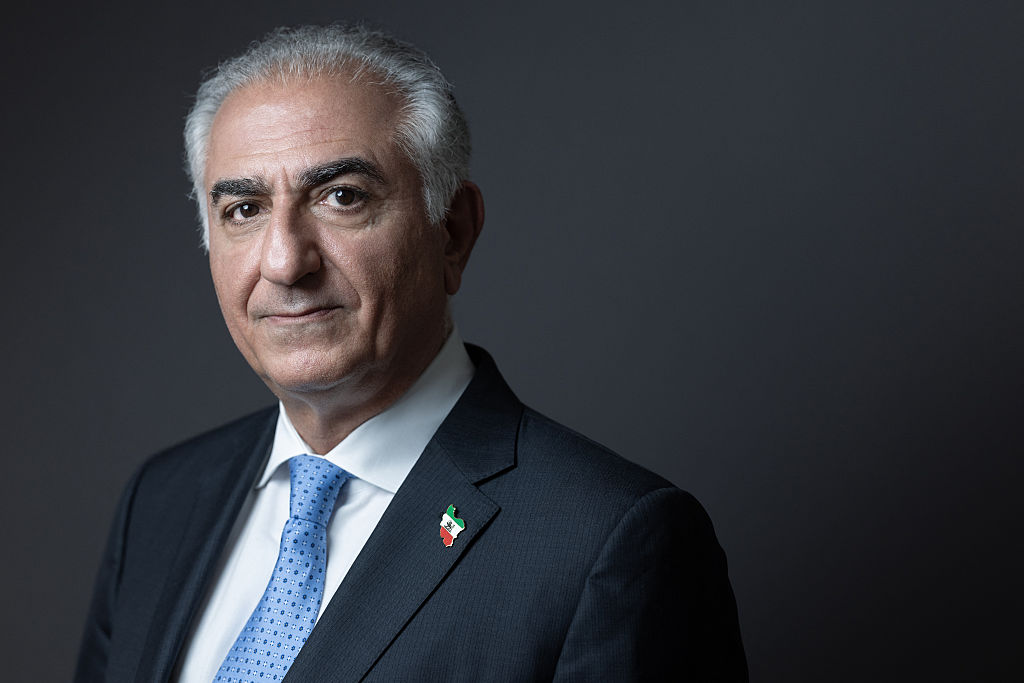Transcript: Senator Chris Murphy on "Face the Nation," January 5, 2020
The following is a transcript of Senator Chris Murphy on "Face the Nation" that aired Sunday, January 5, 2020.
MARGARET BRENNAN: Welcome back to FACE THE NATION. We're joined now by Connecticut Senator Chris Murphy, who is on the Foreign Relations Committee. Senator, good to have you here. Good morning.
SENATOR CHRIS MURPHY: Good morning.
MARGARET BRENNAN: You heard Secretary Pompeo and Senator Rubio say that if Qassem Soleimani had not been killed, there would have potentially been hundreds of Americans who would have been casualties. Do you believe that there was an imminent attack?
SEN. MURPHY: Well, first, it's incumbent upon the administration to present that evidence to Congress. But even if there was an imminent attack and there are always threats being presented to U.S. forces in the region by Iran and Iranian proxies, the responsibility is on the administration to prove to us that by taking out the second most powerful political figure inside Iran, they are preventing more attacks rather than inspiring additional attacks. The reason that the Bush administration and the Obama administration did not greenlight the execution of Qassem Soleimani, despite the fact that he was carrying out attacks on U.S. forces, is because they believed ultimately that would get more Americans killed. And you can already see the consequences of U.S. security in the region with, as you have noted, the beginning of the process to expel American forces from Iraq.
MARGARET BRENNAN: We know that there was some notification given to Congress. You heard Senator Rubio say he knew what the threat was, but couldn't share it. Who in Congress actually knows what happened?
SEN. MURPHY: So my understanding is that there was no consultation with Congress before this strike. That is in violation of the War Powers Act. And there has been very limited communication since then. I would hope that we will get a full briefing, but that briefing not only has to talk about the intel behind the attack, but why it was absolutely necessary to take this dramatic escalatory step. We do not generally execute high level political figures of sovereign nations, in part because we know that that opens a Pandora's box that may expose American officials to assassination, but also because we know that ultimately that might get more Americans killed as it like the will in this case.
MARGARET BRENNAN: The administration had designated the part of the IRGC that Soleimani ran as a terror group, which is sort of the cover that you heard Secretary Pompeo referred to in saying he was a terrorist as well. That argument doesn't hold up to you.
SEN. MURPHY: Well, he does not have authorization from Congress to go to war with Iran. And this potentially sets us on a course to do just that. Listen, this administration's Iran policy has been a disaster from the very beginning. Iran is more powerful today than at the beginning of the Trump administration. They've restarted the nuclear program. They have more influence in places like Yemen and in Syria. And now they are on the verge of launching potentially disastrous strikes against the United States. That is a disaster from the beginning to the end of this administration's policy towards Iran.
MARGARET BRENNAN: Just a few minutes ago, you said execute Qassem Soleimani. And on Twitter and on camera earlier this week, you use the word assassinate. Technically, that's prohibited under U.S. law. You chose that word for a reason. It's politically loaded. Why do you think that is needed here?
SEN. MURPHY: Well, I don't know any other way to describe it. This was the intentional execution of a high level official in a sovereign nation. Qassem Soleimani is an evil man. He has absolutely ordered the murder of hundreds of Americans. But he is a high level representative of a foreign government, a foreign government with a military that could- that could strike at American civilians and American service people. The question is, why didn't the administration look at other means to try to stop this attack from happening? Reporting suggests that his own military leaders were shocked that the president chose an assassination versus more targeted strikes against other Iranian or Iranian proxy assets in the region.
MARGARET BRENNAN: Right. Which is why I thought it was notable when the secretary said that all cabinet members had agreed and top national security advisers. I want to ask you, because you- you've been critical of whether this was legal for the president to do this and specifically this authorization of military force debate. I spoke with the former Obama administration, DHS Secretary Jeh Johnson. I'm sure you know him.
SEN. MURPHY: Yeah.
MARGARET BRENNAN: He used to be general counsel at the Pentagon. And he said this: "Direct engagement of a senior military official of another nation's harder to justify under the AUMF," which is your part of your argument. "But having said that, under existing Office of Legal Counsel opinions, it's plain the president had constitutional authority to use lethal force against General Soleimani as vital national interests were implicated. Therefore, no congressional authorization was required." That's the former Pentagon lawyer, a Democrat. Why is he wrong?
SEN. MURPHY: So in this case, the president has the burden of explaining to the American public and to Congress why the strike against Qassem Soleimani was necessary to prevent future attacks against the United States. There is a general understanding that to prevent future attacks, imminent attacks, you can take action without Congress. The contention here is that by assassinating a high level Iranian official, that you are actually going to inspire and create more attacks against the United States not actually prevent those attacks. And so that--
MARGARET BRENNAN: But so they could argue though that--
SEN. MURPHY: --that's the burden of proof that he has.
MARGARET BRENNAN: --that by imminent, they meant ongoing. Qassem Soleimani was always targeting U.S. interests.
SEN. MURPHY: Right.
MARGARET BRENNAN: Right. So, it- it was always imminent.
SEN. MURPHY: So, that- so, if that's the case, that isn't an imminent attack. If this is just the same set of threats that have existed to the United States personnel in the region for the last seven years--
MARGARET BRENNAN: Right.
SEN. MURPHY: --then in that case, then the administration absolutely has the responsibility to come and get an authorization from Congress before taking action against a sovereign nation.
MARGARET BRENNAN: You know, there are a lot of people listening who will hear that and say, yes, particularly in the military, that'd be great if Congress did something about the AUMF. But look, they haven't because when they get their own party's leader in the Oval Office, no one wants to do something that's actually going to constrain the powers of the executive.
SEN. MURPHY: Right. But listen, the president is bound by what Congress gives him the authority to do. The- the framers of the Constitution didn't give him the ability to start a war just because it was hard to get authorization from Congress. The framers wanted us to have the power because they were worried about exactly what's going on now. The president, by pulling out of the Iran deal, has set into a- a motion—
MARGARET BRENNAN: This is the AUMF from 2002. There was the entire Obama administration. You're saying the reason nothing was updated to this point is what?
SEN. MURPHY: The risk is much greater today. Right? When President Trump came into office, he set into motion a series of blind, escalatory measures with Iran that now have us on the precipice of war. And if he is contemplating taking future military action against a broad set of threats to the American public, then he has the responsibility to come to Congress.
MARGARET BRENNAN: And he'll veto any authorization, if there was one, that's put in legislation and sent to his desk, you know that.
SEN. MURPHY: Well, again, he can't act without authorization from- from Congress unless he's responding to an imminent threat. And he has the responsibility now to prove to us that this was, in fact, an imminent threat. Again, the- the worry here is ultimately this is going to get more Americans killed. And the very fact that we are watching the Iraqis expel the United States from- from Iraq so that we can't carry out the fight against ISIS. Right? Which is in many ways a more grave threat to American interests in the region—
MARGARET BRENNAN: That may not be a final decision, yes.
SEN. MURPHY: --than Iran is. I think it is proof that this ultimately may accrue to the detriment of American national security interests.
MARGARET BRENNAN: Senator Murphy, thank you for coming in--
SEN. MURPHY: Thank you.
MARGARET BRENNAN: --and talking to us today. We'll be right back with retired General David Petraeus.



